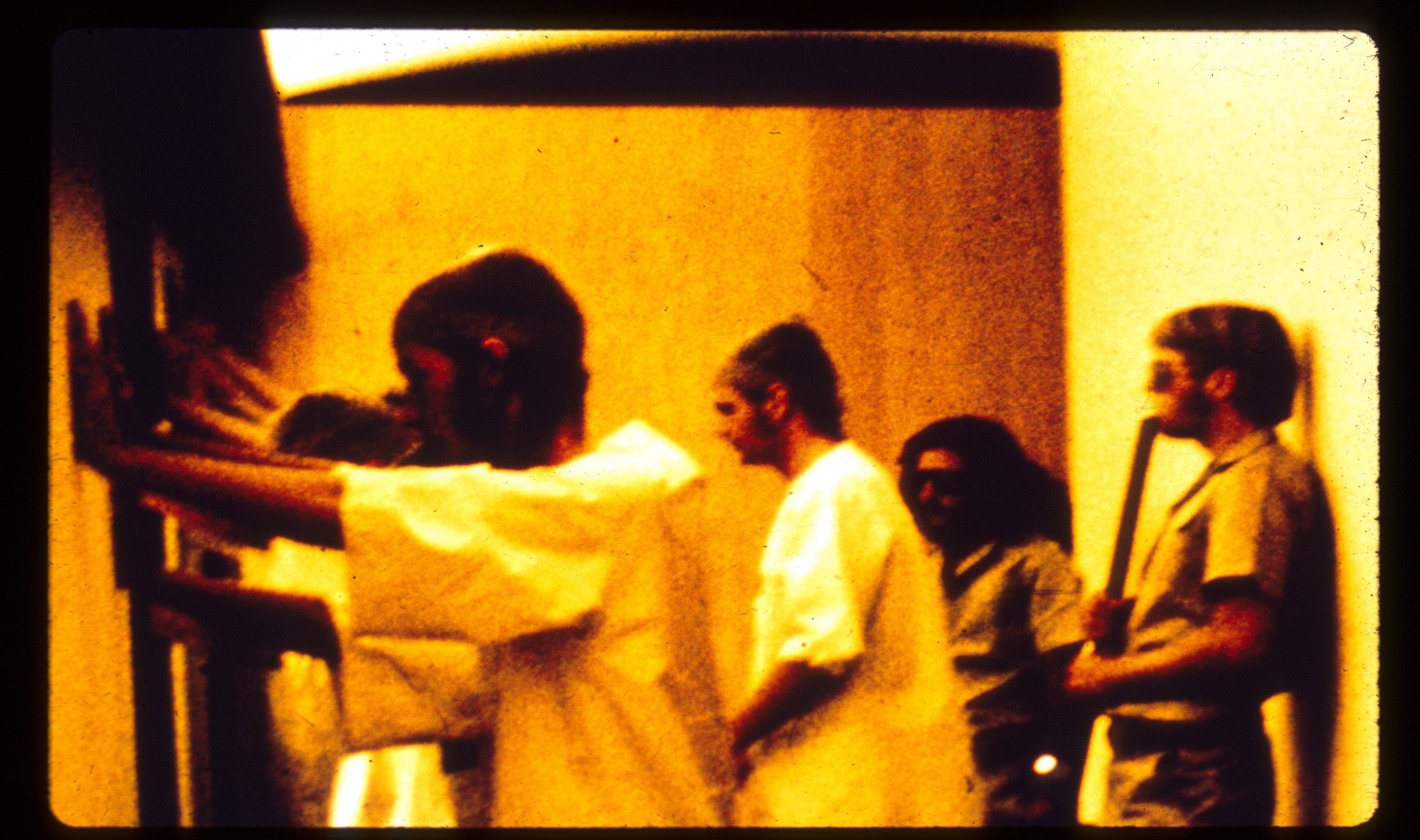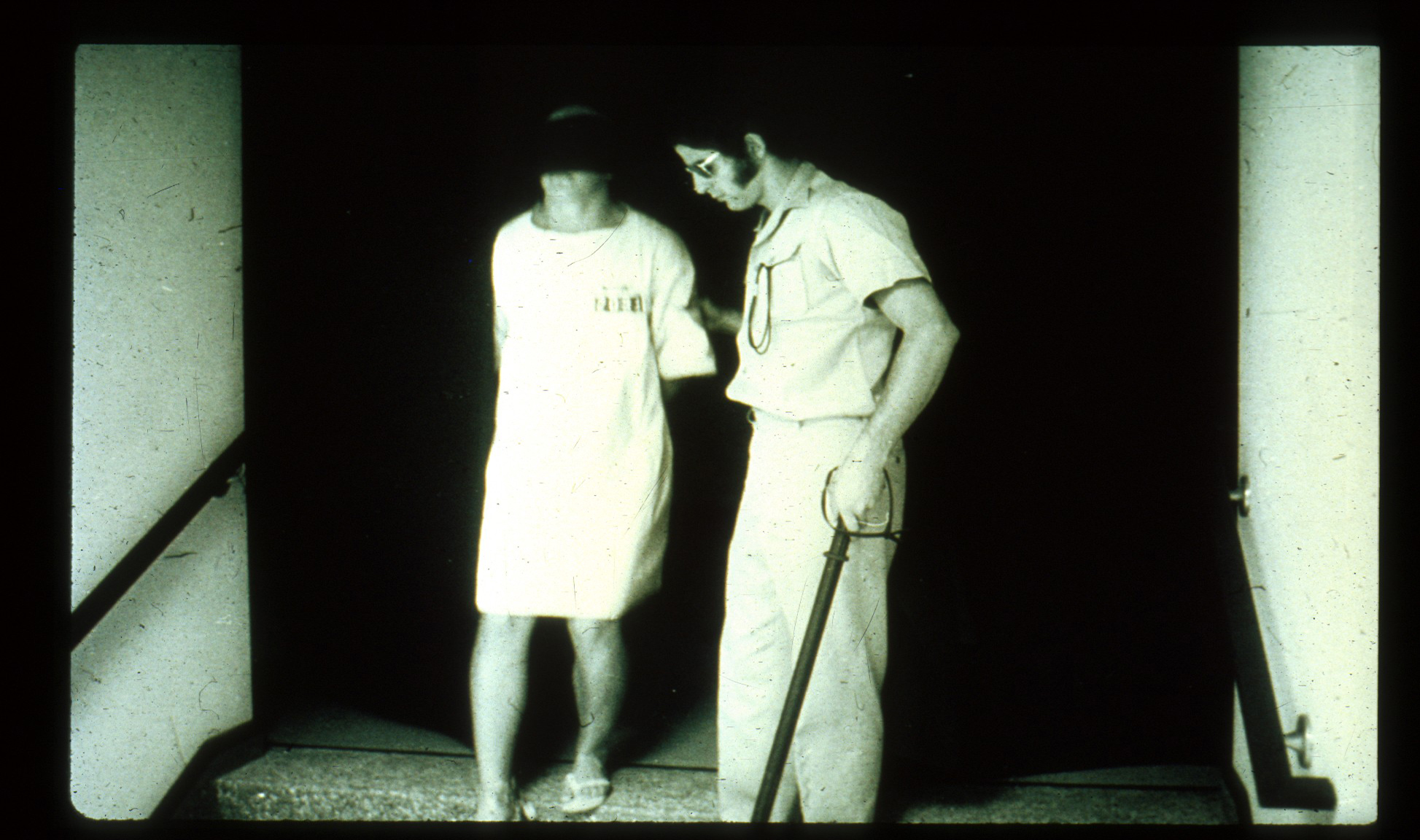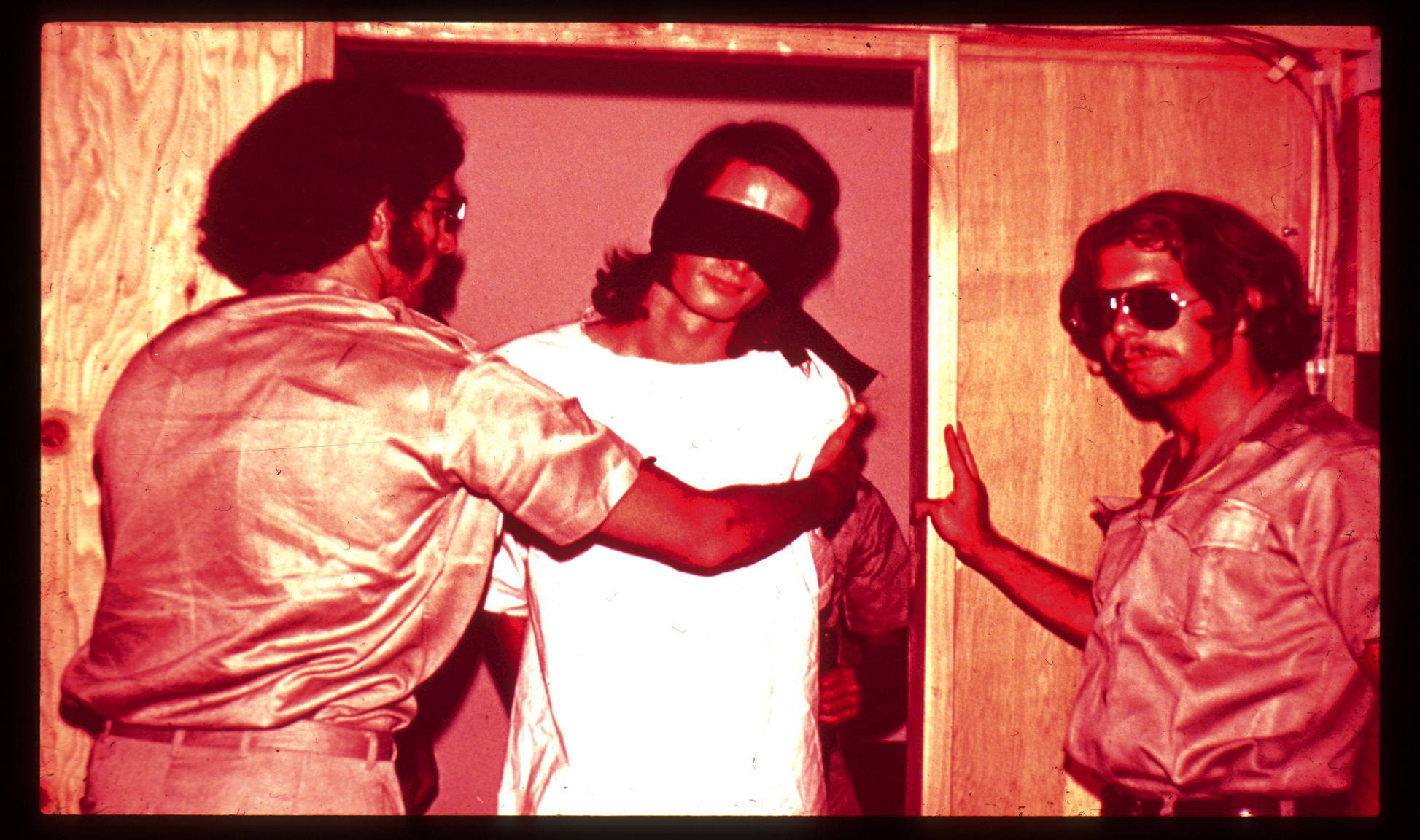Asserting Independence
Because the first day passed without incident, we were surprised and totally unprepared for the rebellion which broke out on the morning of the second day. The prisoners removed their stocking caps, ripped off their numbers, and barricaded themselves inside the cells by putting their beds against the door. And now the problem was, what were we going to do about this rebellion? The guards were very much angered and frustrated because the prisoners also began to taunt and curse them. When the morning shift of guards came on, they became upset at the night shift who, they felt, must have been too lenient. The guards had to handle the rebellion themselves, and what they did was fascinating for the staff to behold.
At first they insisted that reinforcements be called in. The three guards who were waiting on stand-by call at home came in and the night shift of guards voluntarily remained on duty to bolster the morning shift. The guards met and decided to treat force with force.
They got a fire extinguisher which shot a stream of skin-chilling carbon dioxide, and they forced the prisoners away from the doors. (The fire extinguishers were present in compliance with the requirement by the Stanford Human Subjects Research Panel, which was concerned about potential fire threats).
The guards broke into each cell, stripped the prisoners naked, took the beds out, forced the ringleaders of the prisoner rebellion into solitary confinement, and generally began to harass and intimidate the prisoners.
SPECIAL PRIVILEGES
The rebellion had been temporarily crushed, but now a new problem faced the guards. Sure, nine guards with clubs could put down a rebellion by nine prisoners, but you couldn't have nine guards on duty at all times. It's obvious that our prison budget could not support such a ratio of staff to inmates. So what were they going to do? One of the guards came up with a solution. "Let's use psychological tactics instead of physical ones." Psychological tactics amounted to setting up a privilege cell.
One of the three cells was designated as a "privilege cell." The three prisoners least involved in the rebellion were given special privileges. They got their uniforms back, got their beds back, and were allowed to wash and brush their teeth. The others were not. Privileged prisoners also got to eat special food in the presence of the other prisoners who had temporarily lost the privilege of eating. The effect was to break the solidarity among prisoners.
DISCUSSION:
How do you think you would have behaved if you were a prisoner in this situation? Would you have rejected these privileges in order to maintain prisoner solidarity?
After half a day of this treatment, the guards then took some of these "good" prisoners and put them into the "bad" cells, and took some of the "bad" prisoners and put them into the "good" cell, thoroughly confusing all the prisoners. Some of the prisoners who were the ringleaders now thought that the prisoners from the privileged cell must be informers, and suddenly, the prisoners became distrustful of each other. Our ex-convict consultants later informed us that a similar tactic is used by real guards in real prisons to break prisoner alliances. For example, racism is used to pit Blacks, Chicanos, and Anglos against each other. In fact, in a real prison the greatest threat to any prisoner's life comes from fellow prisoners. By dividing and conquering in this way, guards promote aggression among inmates, thereby deflecting it from themselves.
The prisoners' rebellion also played an important role in producing greater solidarity among the guards. Now, suddenly, it was no longer just an experiment, no longer a simple simulation. Instead, the guards saw the prisoners as troublemakers who were out to get them, who might really cause them some harm. In response to this threat, the guards began stepping up their control, surveillance, and aggression.



Every aspect of the prisoners' behavior fell under the total and arbitrary control of the guards. Even going to the toilet became a privilege which a guard could grant or deny at his whim. Indeed, after the nightly 10:00 P.M. lights out "lock-up," prisoners were often forced to urinate or defecate in a bucket that was left in their cell. On occasion the guards would not allow prisoners to empty these buckets, and soon the prison began to smell of urine and feces – further adding to the degrading quality of the environment.
The guards were especially tough on the ringleader of the rebellion, Prisoner #5401. He was a heavy smoker, and they controlled him by regulating his opportunity to smoke. We later learned, while censoring the prisoners' mail, that he was a self-styled radical activist. He had volunteered in order to "expose" our study, which he mistakenly thought was an establishment tool to find ways to control student radicals. In fact, he had planned to sell the story to an underground newspaper when the experiment was over! However, even he fell so completely into the role of prisoner that he was proud to be elected leader of the Stanford County Jail Grievance Committee, as revealed in a letter to his girlfriend.
DISCUSSION
Most prisoners believed that the subjects selected to be guards were chosen because they were bigger than those who were made prisoners, but actually, there was no difference in the average height of the two groups. What do you think caused this misperception?




